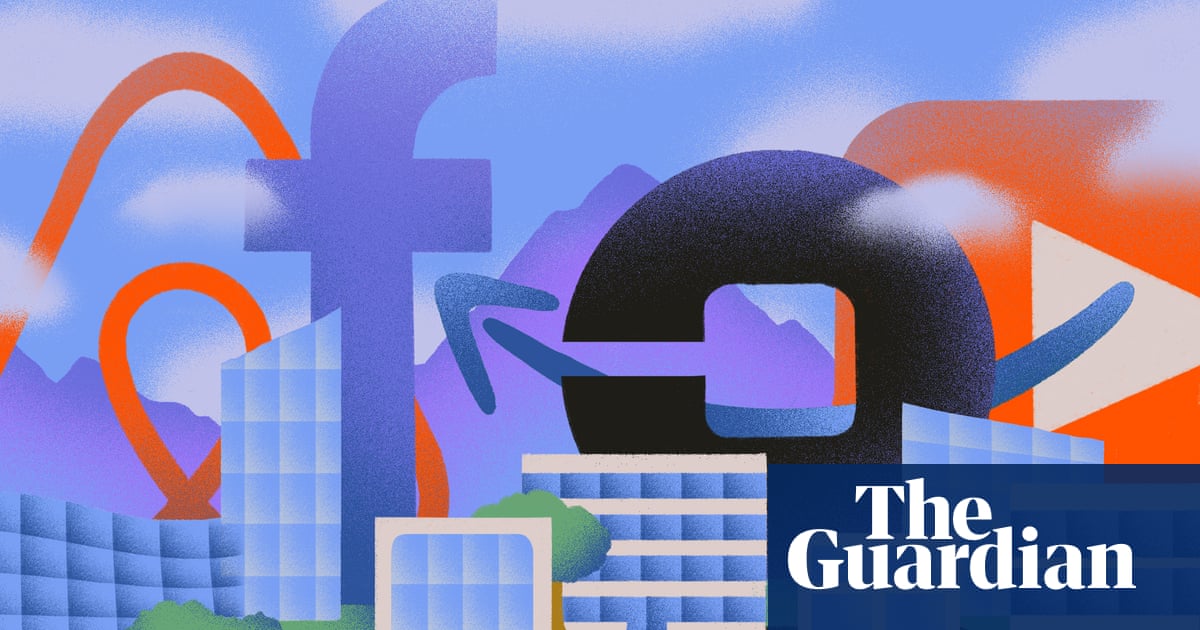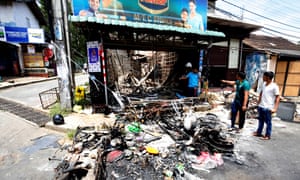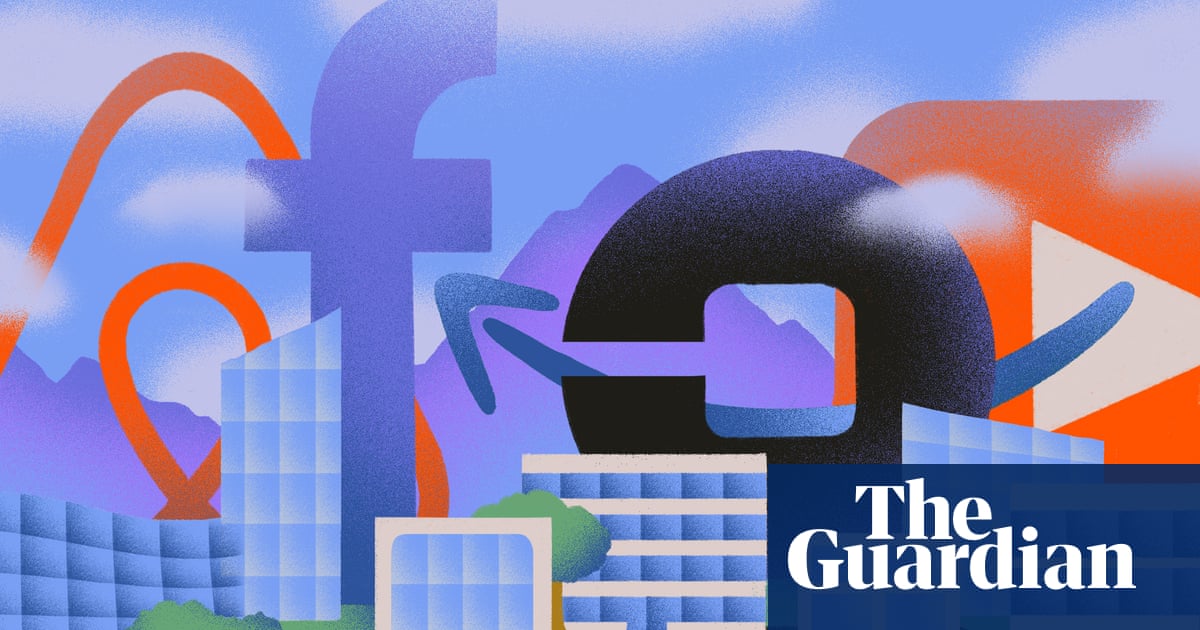Big tech behaves as though power absolves them of responsibility. Have we learned nothing since the financial crash?

Towards the end of the last decade, two American social networks Facebook and MySpace were locked in a battle to conquer the rest of the world.
The two companies took radically different approaches to their global expansions, TechCrunch reported at the time. MySpace spent time and money building local infrastructure for each new market hiring a team on the ground, translating the site and performing outreach to local musicians and artists. Facebook simply enlisted volunteers to crowdsource the sites translation into new languages, starting with Spanish, then German, French and more.
By 2010, Facebook had been translated into more than 80 languages by volunteers and had signed up half a billion users worldwide.Meanwhile, MySpace had begun its long decline.
Setting up all those foreign offices had literally wast[ed] hundreds of millions of dollars, the sites former vice-president of online marketing, Sean Percival, recalled in a postmortem in 2015. Whereas Facebook said: We dont need to set up offices that quick; this thing is gonna scale.
Scale. If there is one word that encapsulates the past decade in the tech industry, it is scale. Scale is the holy grail of the venture capital-backed tech startup, the state in which exponential growth in users and revenues can be achieved by linear increases in infrastructure and costs.
Facebook scaled. Uber scaled. YouTube scaled. Airbnb scaled. Amazon scaled.
In achieving this state, it helped to have a business with minimal physical infrastructure (Facebook, YouTube and other software companies) or to offload the cost of owning and maintaining that infrastructure to contractors (Uber, Airbnb). Amazon managed to scale despite requiring significant physical infrastructure; WeWork did not.
The 2010s saw a fundamental reconfiguring of untold numbers of businesses into platform-based markets, from advertising to transportation to travel. Local businesses folded or adapted; either way, the platforms won.

The numbers associated with the size of these platforms defy comprehension.
In 2018, YouTube said users were uploading 500 hours of video every minute, which is 1,250 days of video per hour, or more than 82 years of video per day. Uber says that it gives 45 rides every second just in the US adding up to nearly 4m rides a day just in the US. Facebook deleted 2.8bn fake accounts between October 2017 and November 2018. When hackers stole the personal information of 14 million Facebook users, the breach represented less than 1% of the companys users, a population greater than Tokyo. Airbnb claims to have listings in more than 100,000 cities.
Its impossible for anyone to know everything thats happening on these platforms, and its obvious that the companies arent even bothering to try.
It is perhaps one of the small ironies of the 21st century that the foundations for many of the tech leviathans of the 2010s were laid just as the global economy was grappling with the consequences of the catastrophic scale of another industry banking.
One month after Facebook began its global conquest with minimal investment and maximum speed, the Federal Reserve bailed out Bear Stearns with a $25bn loan. Airbnb was founded that summer, just a few weeks before Lehman Brothers crashed. In March 2009, as the Dow Jones hit its nadir, Uber was founded.
Too big to fail became the watchword of a policy of the grotesque. Banks got bailed out, homeowners got thrown out. Bankers cashed bonus checks; workers filed for unemployment. The system wobbled but did not collapse. Up close, a million minor tragedies unfolded. But from a high enough vantage point, everything was fine.
Was it a coincidence that the years of too big to fail birthed a generation of companies that have in the intervening decade been allowed to grow even bigger and more unmanageable? Or did those who warned of the moral hazard of the bailout see their predictions come true, in another industry?

Because rather than taking the lesson of comic books that with great power comes great responsibility, the tech platforms have adopted the stance that with great scale comes total impunity.
Take Facebooks global presence. The social network is now officially available in 111 languages. The rules that govern what users can or cannot post on the site on crucial issues ranging from hate speech and incitement, to violence to health misinformation and self-harm had only been translated into 41 languages as of April 2019, according to an investigation by Reuters. The companys 15,000 content moderators were fluent in just about 50 languages, and the companys much-vaunted automated tools that are supposed to detect dangerous content only worked in about 30.
Facebook did not respond to a query from the Guardian asking if these numbers had changed since April.
Monika Bickert, Facebooks head of global policy, told Reuters that translating the content rulebook, which is about 9,400 words in English, was a heavy lift.
Since 2010, Facebooks net profit has exceeded $69.1bn. What may have been opportunistic and strategic in 2008, when Facebook was a money-losing startup, is simply inexcusable today.
The results of unchecked hate and propaganda can be deadly: Facebooks failures to adequately police hate speech have been implicated in a campaign of ethnic cleansing in Myanmar and anti-Muslim riots in Sri Lanka. Language barriers hampered its ability to understand and respond to what was happening in both countries.

And this is just one example of the multitude of areas where Facebook and other large platforms have refused to take responsibility for their own companies, with scale used as a shield for blame.
When Uber released a safety report showing that more than 3,000 passengers in the US had reported sexual assaults in 2018, it cast the problem as societal. In the United States alone, more than 45 rides on Uber happen every second, Ubers chief legal officer, Tony West, wrote in a blogpost. At that scale, we are not immune to societys most serious safety challenges, including sexual assault. Sure, but society doesnt take a cut of every Uber ride; Uber does.
YouTube launched a specialized platform for children in 2015 and, four years and innumerable scandals later, still does not pre-screen content to ensure that it is actually appropriate for children.
Amazons market dominance has been fueled by its decision to allow third-party sellers on its platform. The result has been wildly profitable for Amazon, but a Wall Street Journal investigation found thousands of unsafe items for sale on the site, including childrens products.
Tech companies tend to operate on the assumption that if you feed meals to 10,000 children, and only poison 10 of them, thats an acceptable rate considering the scale.
On the threshold of a new decade, few things seem clear except that we will be dealing with the ramifications of a handful of tech companies unmanageable scale for years to come. Because the beauty of scaled platforms is that, while the profits accrue just to the companies, the negative consequences accumulate for all of us.
This article contains affiliate links, which means we may earn a small commission if a reader clicks through and makes a purchase. All our journalism is independent and is in no way influenced by any advertiser or commercial initiative. By clicking on an affiliate link, you accept that third-party cookies will be set. More information.


Recent Comments